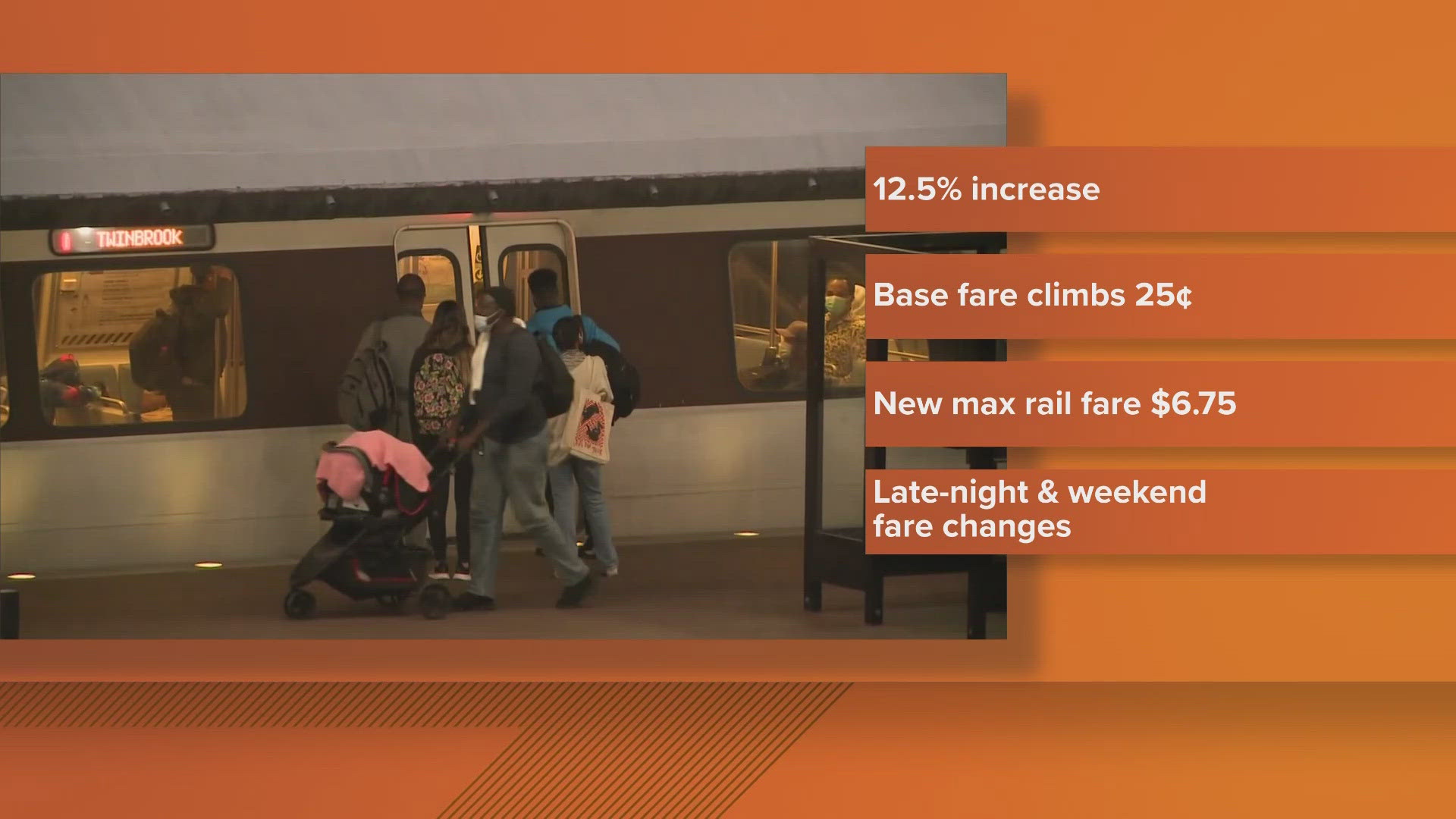WASHINGTON — After months of warnings from Metro that they were facing a financial crisis that could lead to dramatic service cuts, the transit agency announced Thursday that they had approved a budget to keep service levels as is.
Metro's Board of Directors approved a $4.8 billion capital and operating budget for the fiscal year beginning July 1. According to Metro, the money allows them to "largely maintain bus and rail service levels."
"Last year, Metro faced catastrophic cuts to service as we faced an unprecedented $750 million budget gap because of record inflation, more people working from home, and exhausting the last of the federal COVID relief funds for transit," the agency wrote in a statement. "Metro averted those cuts thanks to investments from our regional partners and sacrifices from many different parties."
The "sacrifices" included funding from D.C., Maryland and Virginia, a 12.5% increase on fares and what Metro called "finding $50 million in cost efficiencies." Those cost efficiencies were not elaborated on in Metro's statement.
The fare increases, which go into effect on June 30, include:
- Bus fares and base rail fares increase from $2 to $2.25
- Max rail fare increases from $6 to $6.75
- Late-night/weekend fares increase from flat $2 to between $2.25-$2.50 based on distance
- Max MetroAccess fares increase from $4 to $4.50
Station parking fees will not be raised. The agency will also install bike lockers with hourly rental fees (max of $1 per day).
In Mayor Muriel Bowser's proposed 2025 budget, she had mentioned that while the city was eliminating the Circulator Bus Program -- offering rides for $1 -- to save the District $32 million, the program cut would allow her to invest more in Metro. The circulator contract workers and vehicles are budgeted to be incorporated into the WMATA fleet.
“Over the next year, we’re looking forward to continuing a robust conversation with jurisdictional partners, elected officials, and business and community stakeholders around Metro’s role in the region and how the region can sustain and support the world-class transit that the DMV deserves," Metro Board Chairman Paul Smedberg said. "We also acknowledge that, while this budget maintains the frequent and reliable service our customers rely on, it asks for a shared sacrifice from our employees and customers to make it work."
Metro's Board of Directors will meet on May 1 with the regional Metropolitan Washington Council of Governments' board to discuss long-term financial solutions, as the agency says they will continue to face the same budgetary issues year after year without substantial changes being made.
"Next fiscal year, Metro will face a similarly difficult budget without dedicated funding," the agency statement said. "Metro is the only major transit system in the country that does not have some form of predictable, sustainable funding. "
Do you have a news tip on this story or any other story? We want to hear from you. Tell us about it by emailing newstips@wusa9.com.
MORE WAYS TO GET WUSA9
DOWNLOAD THE WUSA9 APP
Apple App Store: WUSA9 News on Apple
Google Play Store: WUSA9 News on Android
HOW TO ADD THE FREE WUSA9+ APP TO YOUR STREAMING DEVICE
ROKU: add the channel from the ROKU store or by searching for WUSA9.
For both Apple TV and Fire TV, search for "WUSA9" to find the free app to add to your account. Another option for Fire TV is to have the app delivered directly to your Fire TV through Amazon.
SIGN UP TO RECEIVE WUSA9 NEWSLETTER
Subscribe to our daily WUSA9 Newsletter for top stories from WUSA9 curated daily just for you. Get content and information right now for can’t-miss stories, Commanders content, weather, and more delivered right to your inbox.

